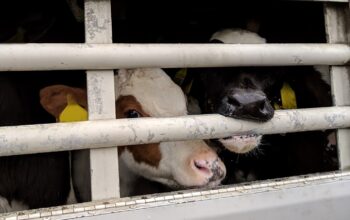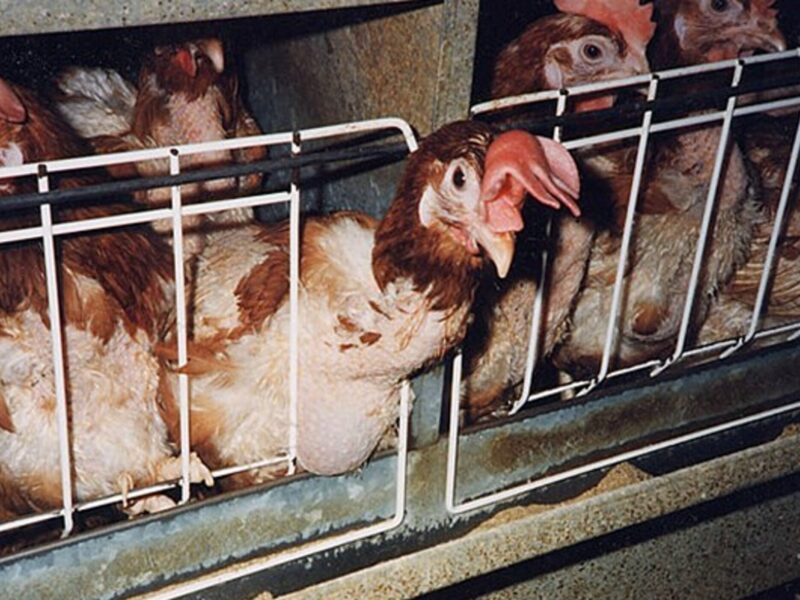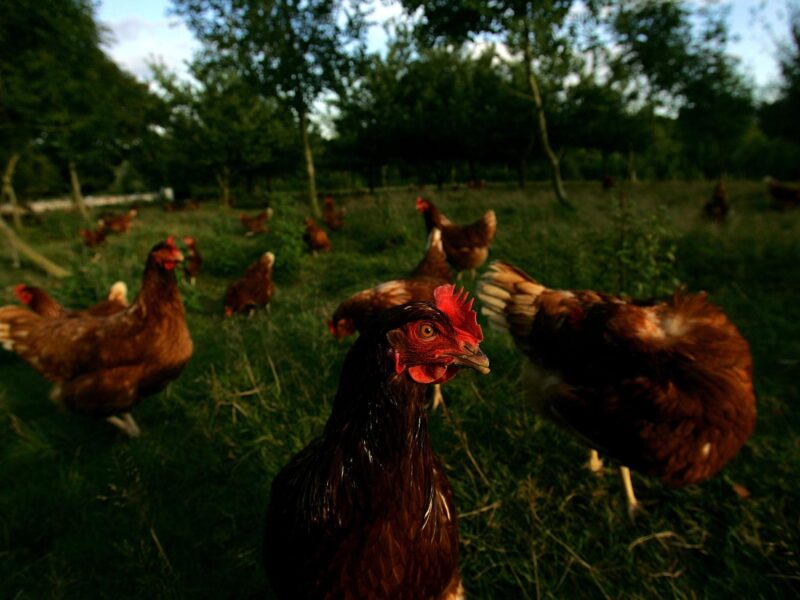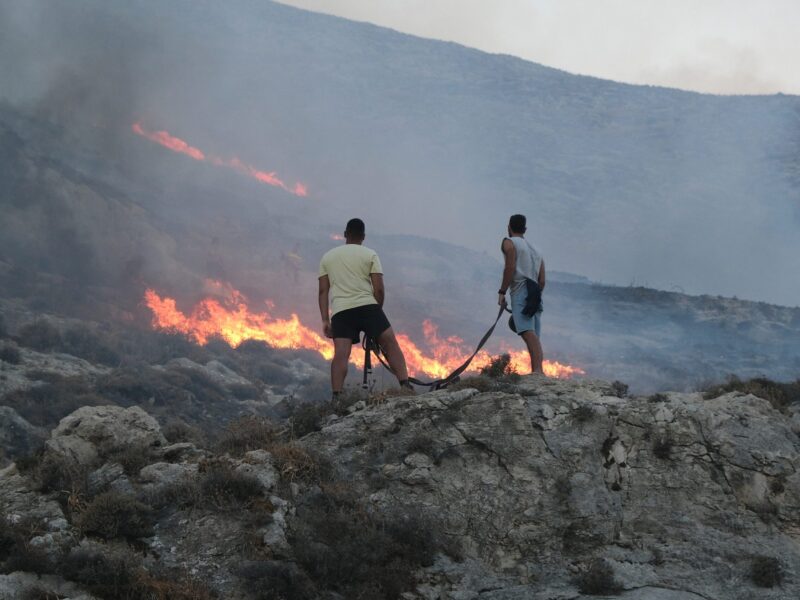
Only A Number, Never A Name

Face of sow in barren pen with piglets | Credit: CIWF / Xiao Shibai
Monday 14th June will be Ban Live Export International Awareness Day. A day to remember why transporting live animals is cruel and unnecessary and has to end. Ahead of this important day, Peter Stevenson OBE, our Chief Policy Advisor, shares his thoughts on the treatment of all farm animals in industrialised animal farming and why it is so wrong.
Peter has worked in the animal welfare movement for three decades and played a leading role in winning the EU bans on veal crates, battery cages and sow stalls, as well as a new status for animals in EU law as sentient beings.
It is over 50 years since Ruth Harrison’s book Animal Machines was published giving us for the first time an insight into the inhumane nature of factory farming. But now, more than ever, animals are treated as machines.

Young calves sucking on the bars of the transport vehicle
We confine them in cages and crates and in vast overcrowded sheds. We lop bits off them – we beak trim them, tail dock and teeth clip them – in order to make them ‘fit’ our ill-designed systems. And then, each year, we send millions on long cruel journeys to distant slaughterhouses and fattening operations. Packed into overcrowded trucks, they become increasingly exhausted, dehydrated and stressed as the long journeys wear on. Some get injured and collapse onto the floor of the truck, where they risk being trampled by their companions. In the worst cases, many die.
But nowhere is our tendency to treat animals as machines more clearly seen than in our use of genetic selection to fine-tune animals to ever-faster growth rates and higher yields. This leads to painful problems, including lameness and mastitis in dairy cows, increased piglet mortality, leg disorders and heart failure in broilers, chronic hunger in broiler breeders, and bone fractures in hens.
In 1978, the National Hog Farmer magazine said: “The breeding sow should be thought of, and treated as, a valuable piece of machinery whose function is to pump out baby pigs like a sausage machine”. I fear this attitude is still with us, though no longer as crudely expressed.
The only solution is to turn back, retrace our steps till we reach the first wrong turn – the inception of factory farming. And then develop a fresh path, an approach to farming that treats animals as sentient beings whose needs, wants and well-being must be fully respected.

Happy piglets | Credit: Shutterstock
The first step on this path is to recognise that good animal welfare entails not only preventing negative factors but also providing opportunities for animals to have positive experiences – fresh air, daylight, the warmth of the sun on their backs, the feel of the breeze moving across their bodies, pleasure, confidence, a sense of control, caring for their young, being raised by their mothers.
Scientists are increasingly recognising the importance for animals’ physical and mental wellbeing of being able to engage in exploration, investigation, problem solving and play.
The next step along the path is appreciating that each animal is an individual with her or his own qualities and characteristics. Each animal is a one-off, a unique entity. Peter Roberts, Compassion in World Farming’s founder, said that factory farming begins when we lose sight of animals as individuals.
Treating animals as sentient beings, though crucial, is perhaps just a way station to the real destination – regarding animals as fellow creatures. And here we need to be accompanied not just by scientific research, but also by other insights into the true nature of animals.
In his book on pigs The Whole Hog Lyall Watson wrote “I know of no other animals that are more consistently curious, more willing to explore new experiences, more ready to meet the world with open-mouthed enthusiasm. Pigs are incurable optimists and get a big kick out of just being”.
And in the 4th Century St Basil of Caesaria wrote “May we realize that they live not for us alone, but for themselves and for Thee and that they love the sweetness of life even as we, and serve Thee better in their place than we in ours”.
In the film The Last Pig former pig farmer Bob Comis says “After 10 years of looking into thousands of pig eyes, I’ve come to understand that they’re never vacant. There’s always someone looking back at me. Pigs are incredibly complex beings”.
They are animals, not machines.
How you can get involved:-
- Please help Compassion in World Farming and use this link to sign our petition to join the call for a future without factory farming
- On Monday 14th June, support Ban Live Export International Awareness Day
– Mark yourself as attending or interested on the Facebook Event page to keep updated and get involved in an action on the day.
– Take part in the global action on Twitter on the 14th of June, using #BanLiveExports
For more information on Ban Live Exports: International Awareness Day, visit: www.stoplivetransport.





